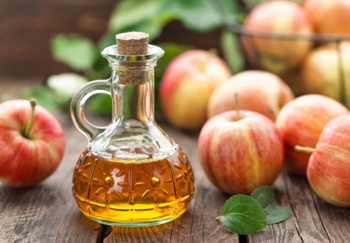
Since 1980, Dietary Guidelines for Americans has provided a roadmap for eating wisely. Although it may seem that the eat-this-not-that rules are forever changing, the key principles of these evidence-based recommendations have remained fairly consistent over the past few decades.
To reassure the public that the most recent guidelines have staying power (and dash any hopes that doughnuts soon will be reclassified as a veggie substitute), the U.S. Department of Health and Human Services and the U.S. Department of Agriculture have for the first time included a date range in the title: The 2015-2020 Dietary Guidelines for Americans. “These recommendations will ring true over time,” says registered dietitian Katherine Basbaum.
What you can expect in the latest guidelines is the same consistent message that a healthy diet is plentiful in fruits, vegetables, whole grains, low-fat or fat-free dairy and lean proteins, but limited in saturated fat, sugar and sodium. What you’ll also find are a few updates in some key areas based on the latest research. These include:
Sugar
The Guidelines for 2015-2020 specify that the consumption of added sugar or empty calories should make up no more than 10 percent of your daily caloric intake. That means if you eat a 2,000-calorie diet, added sugars should account for just 200 calories. “We have more scientific proof now that points to the damaging inflammatory effects of sugar on chronic diseases such as heart disease,” says Basbaum. “And if you’re consuming too many of these empty calories, there’s no room left — from a caloric standpoint — for the nutritious foods your body needs.”
Sodium
In the past, those people with specific illness or disease, such as hypertension, were advised to consume 1,500 mg or less of sodium each day. The new guidelines, however, do not single out specific groups. Rather, the new recommendations state that everyone should limit sodium intake to 2,300 mg. “It’s a little controversial,” says Basbaum. “I still recommend to my patients that they remain below 2,000 mg; if they slip and go over, then they are still within the DGA guidelines.”
Looking for Diet Advice?
Contact our Nutrition Counseling Center today.
Coffee
Good news for java lovers, the latest guidelines confirm that drinking 3 to 5 cups of coffee a day is not a health risk. “The research is not yet strong enough to claim benefits of coffee consumption in this amount, but we do now know that it won’t cause harm,” says Basbaum. Unless, she adds, you’re filling your mug with sugar and creamer, which can send your calorie and saturated fat intake through the roof.
Red and Processed Meats
The American diet is heavy on protein, but it’s high time for a change, according to these recent recommendations, which call for a reduction of red and processed meats. According to Basbaum, the guidelines suggest keeping your intake of animal-based protein to 26 ounces per week, but that includes poultry and eggs, in addition to red and processed meat, which are typically high in sugar, fat and sodium. Processed meats have also been linked to colorectal cancer. “They’re not saying to skip processed meats but if you reduce your consumption, you will reduce your risk of colorectal cancer,” says Basbaum.
Cholesterol
Dietary cholesterol has little to do with blood cholesterol levels. This means eggs and shellfish no longer get a bad rap. However, it’s still important to consider the entire makeup of each food, according to Basbaum. Just because a food is low in cholesterol doesn’t mean it’s not high in other things such as saturated fat. Be mindful and keep portions under control with all foods.
“The easiest way to eat healthy and stay within these guidelines is to eat more fresh, home-cooked meals, and limit processed, packaged foods like chips, crackers, cookies, cakes and frozen meals,” says Basbaum. “You want to eat a balance of protein, healthy fats, whole grains, fruits and veggies and keep added sugars, sodium and saturated fats to a minimum. These key points won’t change.”

